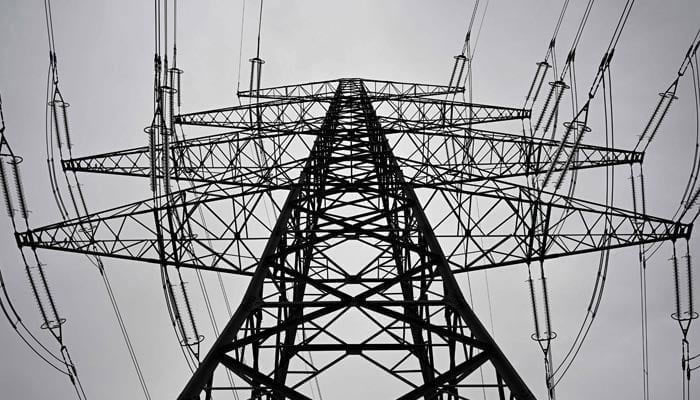Senate panel demands data on IPPs amid surging power tariff
Senate secretariat has directed division to submit data well before committee’s next meeting
ISLAMABAD: Amid rising electricity costs and significant capacity payments by consumers to private power generators, the Senate Standing Committee on Power has sought extensive documentation and data regarding the country’s Independent Power Producers (IPPs). The Committee officially wrote to the Power Division following a meeting on July 12, 2024.
The senate secretariat has directed the division to submit the data well before the committee’s next meeting, scheduled for the end of July or early August, to allow members ample time for review and discussion.
Notably, the July 12 meeting of the panel chaired by Senator Mohsin Aziz had emphasized that rising electricity prices are causing severe distress to citizens and urged immediate action to address the issue.
It highlighted the need to continuously review the IPPs agreements and assess the damage these private companies have inflicted on the public. The Private Power and Infrastructure Board (PPIB) managing director told the panel that the country currently had an installed capacity of 45,000 megawatts, with 60 percent generated from private sector power plants (IPPs).
The demand for the data and further details regarding the private power generators articulated in a directive issued on Thursday by the Senate Secretariat outlines several key areas of interest to aid the committee’s ongoing review of the power sector. A copy of the directive available with ‘The News’ has directed the Ministry of Energy (Power Division) to provide comprehensive details on the agreements with IPPs, particularly focusing on contracts established since 1992.
The asked-for information includes the original agreements, the cost details per kilowatt-hour (kWh) for each plant, and a comparative analysis of energy prices during that period.
Additionally, the committee seeks information on the historical rates at which energy was purchased by other developing countries, details on capacity payments made over the last two decades highlighting reasons such as evacuation failures or temporary faults in feeder evacuation, instances of technical faults in power plants over the last twenty years, and identification of the sponsors of each private sector power plant.
The directive also calls for agreements of wind power plants established in the last six years, including cost and rate details. Information on current agreements with IPPs, including changes over time and details of return on investment (ROI) and return on equity (ROE), is also sought.
The committee also seeks summaries of power policies over different periods, heat efficiency levels of the plants both current and at the time of establishment, the best efficiency levels globally, and the country’s total Maximum Demand Indicator (MDI) of electricity.
The Committee’s chairman has emphasized that the information should be provided with a focus on gas and furnace oil-based private power plants established since 1992, particularly those with a capacity of 50 megawatts or more.
-
 Kanye West's Last Measure To Save Bianca Censori Marriage As He Tries To Salvage Image
Kanye West's Last Measure To Save Bianca Censori Marriage As He Tries To Salvage Image -
 Kim Kardashian Finally Takes 'clear Stand' On Meghan Markle, Prince Harry
Kim Kardashian Finally Takes 'clear Stand' On Meghan Markle, Prince Harry -
 Christina Applegate Makes Rare Confession About What Inspires Her To Keep Going In Life
Christina Applegate Makes Rare Confession About What Inspires Her To Keep Going In Life -
 Patrick J. Adams Shares The Moment That Changed His Life
Patrick J. Adams Shares The Moment That Changed His Life -
 Selena Gomez Getting Divorce From Benny Blanco Over His Unhygienic Antics?
Selena Gomez Getting Divorce From Benny Blanco Over His Unhygienic Antics? -
 Meet Arvid Lindblad: Here’s Everything To Know About Youngest F1 Driver And New Face Of British Racing
Meet Arvid Lindblad: Here’s Everything To Know About Youngest F1 Driver And New Face Of British Racing -
 At Least 30 Dead After Heavy Rains Hit Southeastern Brazil, 39 Missing
At Least 30 Dead After Heavy Rains Hit Southeastern Brazil, 39 Missing -
 Courtney Love Recalls How ‘comparison’ Left Marianne Faithfull ‘broken’
Courtney Love Recalls How ‘comparison’ Left Marianne Faithfull ‘broken’ -
 Pedro Pascal Confirms Dating Rumors With Luke Evans' Former Boyfriend Rafael Olarra?
Pedro Pascal Confirms Dating Rumors With Luke Evans' Former Boyfriend Rafael Olarra? -
 Ghost's Tobias Forge Makes Big Announcement After Concluding 'Skeletour World' Tour
Ghost's Tobias Forge Makes Big Announcement After Concluding 'Skeletour World' Tour -
 Katherine Short Became Vocal ‘mental Illness’ Advocate Years Before Death
Katherine Short Became Vocal ‘mental Illness’ Advocate Years Before Death -
 SK Hynix Unveils $15 Billion Semiconductor Facility Investment Plan In South Korea
SK Hynix Unveils $15 Billion Semiconductor Facility Investment Plan In South Korea -
 Buckingham Palace Shares Major Update After Meghan Markle, Harry Arrived In Jordan
Buckingham Palace Shares Major Update After Meghan Markle, Harry Arrived In Jordan -
 Demi Lovato Claims Fans Make Mental Health Struggle Easier
Demi Lovato Claims Fans Make Mental Health Struggle Easier -
 King Hospitalized In Spain, Royal Family Confirms
King Hospitalized In Spain, Royal Family Confirms -
 Japan Launches AI Robot Monk To Offer Spiritual Guidance
Japan Launches AI Robot Monk To Offer Spiritual Guidance




